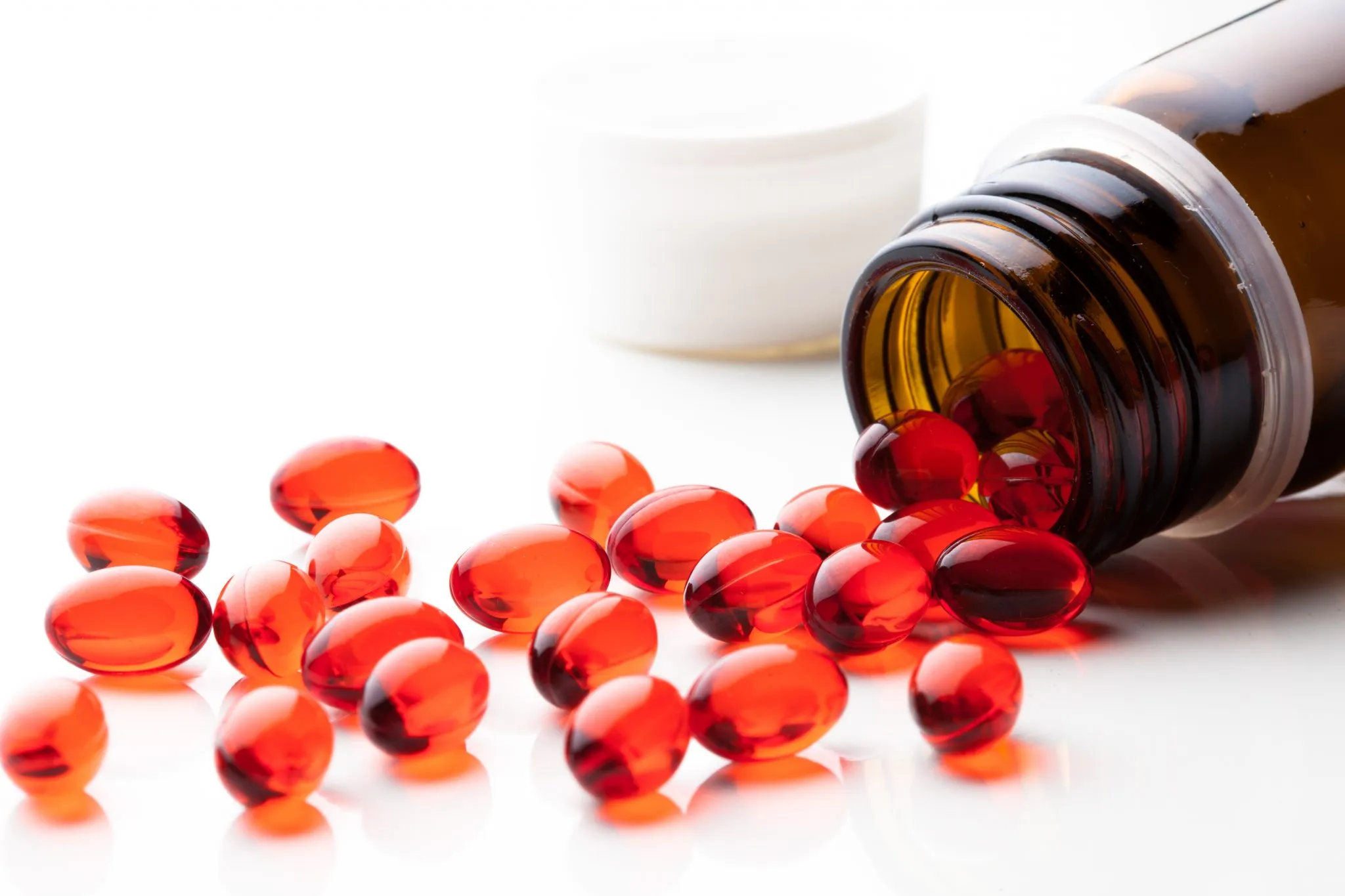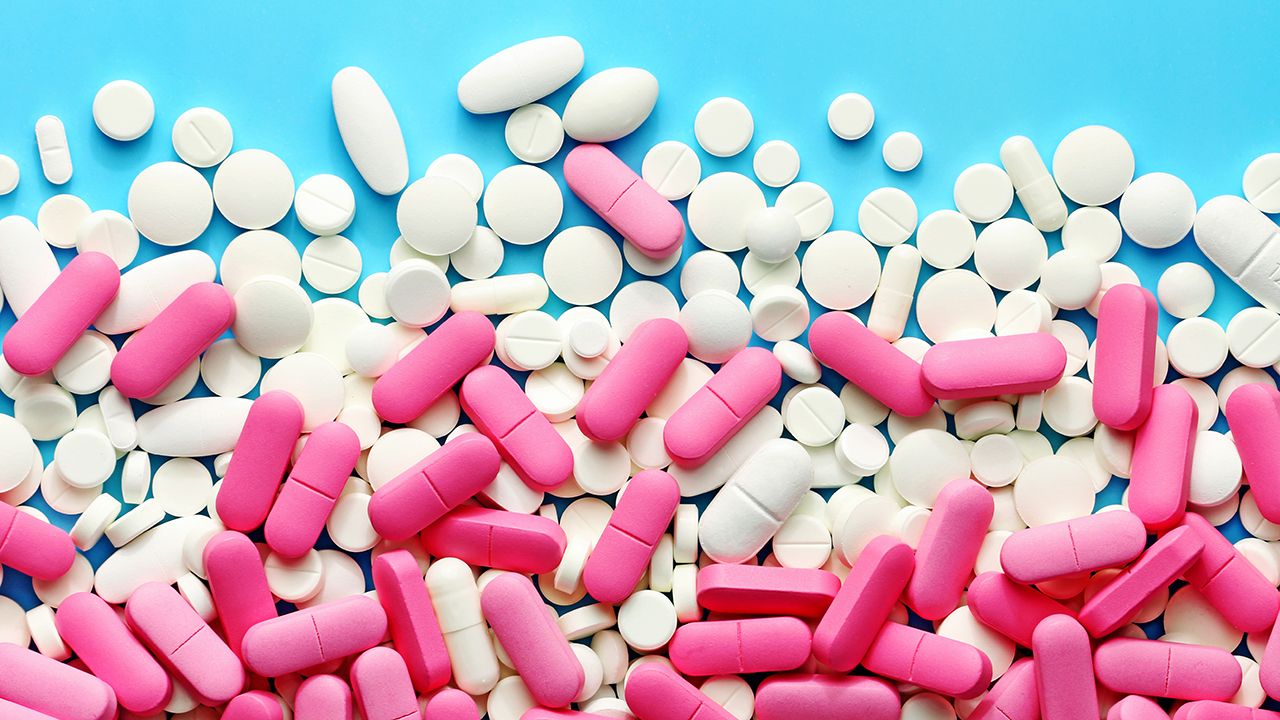With supplements, we often have a choice between gel capsules and tablets. Both have advantages, so it may come down to personal preference. However, it’s important to make an informed decision so you can get the most out of your products. Use this guide to weigh softgels vs. tablets and determine which is best for you.
Softgels vs. Tablets vs. Hard Capsules
Despite all being forms of pills, softgels, tablets, and hard-shelled capsules are very different ways to deliver medication or supplements.
Softgels
Softgels are a type of pill with ingredients hermetically sealed in a soft outer shell. A softgel capsule is made from animal-sourced or vegetarian gelatin and antioxidants and is more like a soft outer shell than a rigid container.
Softgels often have a longer shelf life because they’re resistant to UV rays and oxidation. They’re particularly suitable for oil and liquid formulations.
Learn how Soft Gel Technologies can help you formulate and produce high-quality softgel supplements.
Pros and Cons of Softgels
One of the pros of softgel capsules is that the outer layer protects your mouth from what’s inside. In other words, the part of the capsule that touches your tongue is gelatin, so you don’t taste the ingredients inside, even when they are potent or bitter.
Another benefit is that they are easy to swallow because the outside is a smoother and softer material. They also dissolve rapidly and allow the ingredients to absorb quickly into the body.
Finally, softgels are more tamper-resistant than hard capsules and tablets since they’re hermetically sealed.
The con of gel capsules is that some of them can come in a larger, oblong size, which can be intimidating. If you are new to swallowing pills or have trouble getting them down, you may find them uncomfortable. However, many products come in small sizes that are quite easy to get down.
Hard Capsules
Hard-shelled capsules are, like softgels, made from gelatin but are harder and consist of two pieces that fit together. They’re typically filled with ingredients in powder form but can also hold liquids.
In some cases, you may even be able to open them and add the contents to your food or drink. Just make sure to check with your doctor first to make sure this won’t alter the effects of the product.
Pros and Cons of Hard Capsules
As with softgels, a major benefit of hard capsules is that you won’t taste the ingredients inside them, thanks to the gelatin. The outer layer will dissolve after the capsule has been swallowed. Likewise, the capsules are absorbed faster than tablets.
Hard capsules also offer more flexibility in formulation and dosage due to being within a thinner and harder shell. Softgel capsules have to balance ingredients and gelatin so the pill isn’t too big to swallow.
A disadvantage of hard capsules is that they tend to be more prone to tampering or cracking open than tablets. The shell can be cracked open manually or, in some cases, by humidity, affecting the ingredients inside.
You may also need to take more capsules to get the right amount of a medication or supplement compared to a tablet, like needing to take two capsules instead of one tablet for the same dosage, due to limitations on how many ingredients fit in a capsule.
Tablets
No, we’re not talking about portable electronic devices. In the world of supplements, tablets are made from a powdered version of concentrated ingredients. They’re combined with a substance that bonds the powder so it holds a particular shape. Sometimes, tablets are coated to make them easier to swallow.
Pros and Cons of Tablets
An advantage to choosing tablets is that they often contain the highest concentrated dosage. This means you can typically take fewer tablets than capsules for the same results.
Some tablets are even chewable or dissolvable, perfect for those who struggle with swallowing pills.
In manufacturing, tablets can be made faster and cheaper than capsules due to a simple production process and inexpensive formulas.
A downside to tablets is that they usually don’t taste very good. The longer they sit on your tongue, the worse the taste gets. If you have trouble swallowing pills, you may end up with a bitter flavor in your mouth before you get the tablet down.
Additionally, tablets take longer to absorb than capsules. You also run the risk of the tablet not doing its job at all, since it can be more difficult for the body to break down.
Liquid Gels vs. Tablets
The important question now is, are liquid capsules better than tablets? It depends on your personal preferences and needs. The biggest difference between gel caps and tablets lies in how they’re made and how they deliver medication or nutrients.
In general, your body will benefit more from an appropriate dose of either type of liquid-filled capsule than it will from tablets. That’s because liquid ingredients are more easily and quickly absorbed into the body. In other words, liquid gels work faster than tablets.
Although a tablet may contain more concentrated ingredients, it may also break down inconsistently and not reach the intended level of efficacy.
Plus, since a tablet will need more time to break down in your body, it takes longer to transform into a state that can be used. Gel capsules, on the other hand, are already in an emulsified state or a paste and can begin working in a matter of minutes.
Softgels vs. Tablets vs. Hard Capsules FAQs
Here are three of the most common questions about softgels, tablets, and hard capsules.
What Are Softgel Capsules Most Suitable For?
Softgel capsules are most suitable for liquid or fat-soluble formulas due to the complete encapsulation of ingredients in gelatin or similar material. Additionally, if a business is looking to stand out within the health industry, softgel capsules offer more customization in size and color than hard capsules. A manufacturer like Soft Gel Technologies can provide custom-made softgel supplements for any formulation you need.
As for who softgel capsules are best suited for, they are for those who have difficulty swallowing and those who need the ingredients to start working as quickly as possible. Softgels are easier to swallow than capsules or tablets and are absorbed faster.
What Are Tablets More Suitable For?
Tablets are most suitable for companies with various dosages of a single formula. Between being able to pack the highest concentration of ingredients within a single tablet and the ability to split them, tablets offer the most options for dosages.
They can also be created as delayed-release, immediate-release, or extended-release—adding to the versatility of tablets.
People with complicated dosage needs are best suited for tablets because they are easier to split than capsules.
What Are Capsules More Suitable For?
Hard capsules are most suitable for powder ingredients, offering faster absorption and higher bioavailability than tablets.
Those with swallowing problems will also have an easier time with capsules than tablets. Plus, the ability to open the capsule and use the powder directly in some cases, provides additional flexibility.
Soft Gel Technologies
Contact Soft Gel Technologies to learn more about gelatin capsules’ benefits and how we can help you create the perfect product to suit your unique needs. We can manufacture custom formulas or help you find branded softgels with the ingredients you’re looking for.
Here








